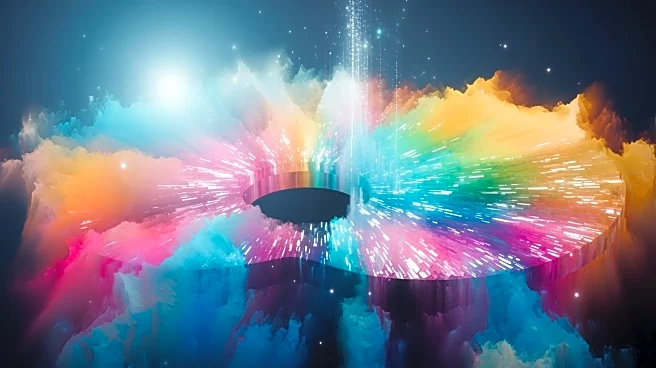What's Happening?
A recent opinion piece highlights the growing concerns over artificial intelligence's impact on copyright and creativity. The article discusses how AI technologies, such as ChatGPT, can mimic the writing styles of authors, raising issues about intellectual
property theft. The author recounts an experience where AI-generated text closely resembled their own writing style, illustrating the potential for AI to replicate creative works without proper attribution or compensation. This development follows reports that AI models have been trained using pirated books, including the author's own work, 'Late Migrations.' The piece underscores the ethical and legal challenges posed by AI in the literary world.
Why It's Important?
The rise of AI-generated content poses significant challenges to the publishing industry and individual authors. As AI becomes more adept at mimicking human creativity, it threatens the livelihoods of writers by potentially devaluing original works. This situation raises broader questions about copyright laws and the protection of intellectual property in the digital age. The ability of AI to produce content that closely resembles human writing could lead to a reevaluation of how creative works are protected and monetized. Authors and publishers may need to advocate for stronger legal frameworks to safeguard their rights and ensure fair compensation.
















